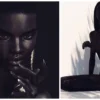News
Women Burn Hijabs And Cut Hair As Protests Spread In Iran
The protests emerged as Masha Amini, arrested for wearing Hijab improperly, died in custody.
Protests have spread in Iran following the death of Mahsa Amini, who was arrested in Tehran by the morality police. The 22-Year-Old had been taken to the Vozara Street Detention Center to be educated about the hijab, but while in custody, she collapsed and was taken to the hospital, where she eventually passed away.

Local police claimed Amini suffered a heart attack, but her family insisted she had no prior heart conditions.

The morality police are recognized as a dedicated unit that enforces strict dress codes for women, such as wearing the hijab. Public anger has since emerged since the Iranian authorities announced the passing. Activists also said Amini, whose Kurdish name is Jhina, suffered a fatal blow to the head. Officials in the Islamic republic deny this claim.


Some women protestors have defiantly removed their hijabs, burned them in bonfires, and symbolically cut their hair.

Many male protestors also expressed solidarity with Amini, who was arrested in September after traveling from Iran’s Kurdistan region to visit relatives in the capital for an apparent breaking of the dress law. The scale, ferocity, and feminist nature of the ongoing protests are comparable to the last demonstration in 2019.

Edited security camera video released by Iran’s state media appeared to show Amini talking with a female official, who grabbed at her clothing.

She was then seen holding her head with her hand and collapsing to the ground at the re-education center. There are reports that officers beat Amini with a baton and banged her head against one of their vehicles. Her father told pro-reform news outlets that his daughter was fit and had no health problems.


Amjad Amini told BBC: “They’re lying. They’re telling lies. Everything is a lie. No matter how much I begged, they wouldn’t let me see my daughter.”

Amjad alleged that when he viewed his daughter’s body leading up to her funeral, it was wrapped except for her feet and face, though he said he noticed bruising on her feet. He insisted: “I have no idea what they did to her.” So far, almost all the provincial towns in Iran’s Kurdish region, including Kermanshah and Hemedan, have seen demonstrations.


Videos from the protests show people chanting, “Women, life, freedom. Others could be seen shouting ‘Death to the dictator.”

In one video in Tehran, protestors march around a bonfire at night chanting: “We are the children of war. Come on and fight, and we’ll fight back.” In another, people could be heard shouting: “No to the headscarf, not to the turban, yes to freedom and equality. Witnesses told CNN that 450 people had been injured in the protests. Human rights groups also reported that at least nine people had been killed.


“The authorities must stop targeting, harassing, and detaining women who do not abide by the hijab rules,” said UN Human Rights Chief Nada Al-Nashif.

Al-Nashif called for a prompt, independent, and impartial investigation into Masha Amini’s death. She also expressed concerns at the reported unnecessary or disproportionate use of force against the thousands of people who have participated in protest since Masha’s death, noting the importance of respecting the right to peacefully exercise freedom of expression, assembly, and association.

The protests show little sign of slowing. And it remains to be seen if Amini’s death will become an important moment in the pursuit of freedoms for many Iranians or an ember that will cool off.


However, CNN reported that an aide to Supreme Leader Ali Khamenei had promised a thorough investigation into Amini’s death during a meeting with her family. Amini’s brother, Kiarash, who had attempted to intervene when she was being taken to the police station, cried he never saw his sister awake again.


In Iran, walking unveiled or without wearing a hijab is a punishable crime under the Islamic Hijab Rules.

Since the 1979 Islamic Revolution, Iranian law has required all women, regardless of nationality or religious belief, to wear a hijab covering the head and neck while concealing the hair. Women are also asked to cover their arms and legs with loose clothing. With all the protests, Abdolreza Pourzahabi, Khamenei’s rep, hopes the family showed goodwill to help bring back calm in the society.



















